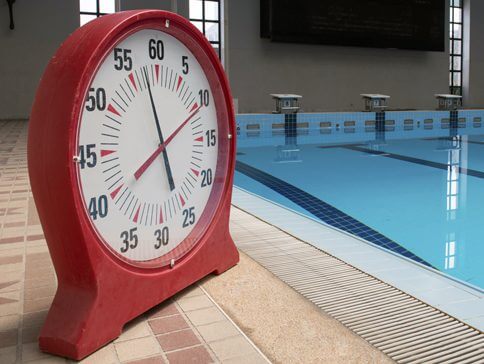Life Skills That Benefit Swimmers Throughout Their Lives

Life Skills That Benefit Swimmers Throughout Their Lives
As a swimmer, one of the questions I hear most is: “Why do you swim?”
To any other athlete or non-swimmer, it’s definitely food for thought. Unlike other sports, swimming is largely individual and is judged by the times a swimmer achieves. While soccer and basketball players train to play games, we train to make it from one end of the pool to another.
At face value, swimming could seem like a result-centered sport lacking the teamwork and excitement that other athletes have – but that’s far from the truth. In addition to some helpful skills like the ability to do lightning-fast mental math on any multiple of 25, and the ability to eat twice your bodyweight after practice, swimmers obtain a number of valuable life skills from competing in this sport.
Time Management
One of the most important skills we get out of swimming is time management. Whether you’re competing in high school or college, or for a club team, the time commitment that comes with the sport is always tough to balance with academics, extracurricular activities, and your social life. Commutes to the pool often have swimmers scrambling to arrange carpools and cramming schoolwork on the way to practices. Since swimming is a sport where daily practices are essential for improving, swimmers have to plan their schedules weeks in advance to make sure they don’t miss any events.
Swimming is also notorious for excessively long meets – many club invitationals will last for three days, taking up a swimmer’s entire weekend. In addition to the mental and physical preparation swimmers need to gear up for long meets, they also need to keep track of other commitments to make sure they have enough time to do work outside of the pool.
Resilience and Goals
A defining characteristic of swimmers is grit. Swim practices consist of lengthy, repetitive sets of laps with little to no rest. Oftentimes, the sets will be so complicated that coaches will print out a copy of the practice for each lane (usually followed by collective groans from the entire team). The ability of swimmers to understand the obstacles they face and still put in their best effort is a lifelong skill that is developed from years in the pool.
Swimming is an individual-based sport. Rather than having one athlete’s performance determined by the team’s performance, the team’s ranking is a collection of each swimmer’s individual achievements. For this reason, each swimmer has their own unique goals to set and pursue. Setting goals is not as simple as saying “I want to drop time.” It involves understanding your weaknesses and determining the best way to improve upon them. Being able to stay focused on your own goals and follow through with them at every practice and meet is a unique part of swimming.
Teamwork
Relays offer an interesting approach to the sport of swimming by measuring the strengths of four swimmers in a single race. While they may seem no different since they simply combine four races into one, relays contribute heavily to the teamwork aspect of the sport. One of the first things swimmers learn is that in a relay is support – which is why when a teammate falls behind in a relay, the rest of the team does their best to make up for lost time rather than stay fixated on the slower leg. In addition, relay teams consist of four swimmers, and can stay the same throughout an entire season. As swim teams are typically large, racing with a small group at every meet helps swimmers build confidence and develop strong teamwork skills.
It’s true that swimming is a lifelong sport. These essential life skills are ones that swimmers will carry with them throughout their swimming careers, and beyond.
All commentaries are the opinion of the author and do not necessarily reflect the views of Swimming World Magazine nor its staff.



